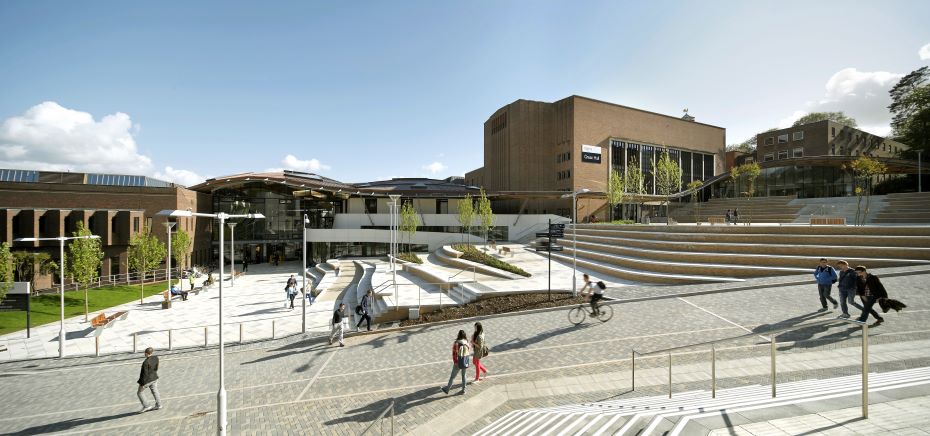Exeter experts to play key role in new initiative to supercharge Artificial Intelligence

Experts from the University of Exeter will play a pivotal role in helping put the UK at the forefront of AI advances and tackle important global challenges.
Academics from the University are set to join forces with leading mathematicians, engineers and computer scientists from across the UK key sectors, including healthcare, pandemics and the environment.
Thanks to major new funding from the UK Research and Innovation (UKRI) Engineering and Physical Sciences Research Council (EPSRC), nine national AI research hubs will develop key research, expertise, and innovations which will make AI an even more versatile, trustworthy tool.
The University of Exeter will be part of the £12.8m “AI for Collective Intelligence (AI4CI)” hub, which will generate new AI to leverage intelligence that is distributed across populations of people and devices in order to improve both individual and collective decision making.
This already occurs naturally when people share, compare, and filter information, but new AI offers the possibility to harness this kind of collective intelligence at scale, delivering support and guidance tailored for individuals and national agencies alike.
For example, identifying trends within the experiences of diabetes patients could be used to provide bespoke anticipatory guidance direct to patients via smart agents.
AI also has capacity to assist during major threats to public health. For instance, the Hub’s Pandemic Resilience theme will reconsider the modelling and analyses undertaken during the Covid-19 pandemic, exploring how new AI approaches could improve centralized policy making and empower individual decisions during a future pandemic.
The University of Exeter will utilize their expertise from the Joint Centre of Excellence in Environmental Intelligence (JCEEI), the Institute for Data Science and Artificial Intelligence (ISDAI) and the Computer Science department. They will help develop new technologies to ensure climate data is easily and more readily available to policymakers in order to meet the growing threat of environmental damage and climate change.
Professor Hywel Williams, an expert in Environmental Data Science and part of the new hub said: “The AI4CI Hub will study how humans and machines interact in social, group or collaborative settings – for example, smart cities, transport, financial markets, or social media. This has many applications for environmental sustainability, where we hope to steer complex social/technological systems towards greener trajectories.
“The Exeter team will develop novel smart agent technologies that make climate data more easily accessible to decision-makers. We also look forward to collaborating across the AI4CI Hub and its partner organisations to find new applications where AI and collective intelligence can reduce environmental impacts.”
Hub Director Professor Seth Bullock, Toshiba Chair in Data Science at the University of Bristol, said: “Our Hub’s main aim is to put useful AI in the hands of regular people, especially those who might otherwise not benefit from it. Modern AI is driven by huge amounts of data collected from us and Collective Intelligence research is about enabling us to benefit directly from the AI systems that data fuels. We can’t wait to get started.”
Professor Charlotte Deane, Executive Chair of EPSRC, said: “Artificial intelligence is already transforming our world. EPSRC supports world-leading research to unlock its potential and ensure it is developed and used in an ethical and responsible way. Long-term research funding has led to revolutionary advancements that have made AI a powerful tool for many applications.
“These hubs will deliver revolutionary AI innovations and tools in sectors from healthcare to energy, smart cities and environment. They will achieve this by solving key challenges and improving our understanding of AI helping to drive the increased productivity and economic growth promised by this technology.”
The nine hubs are led by eight universities but involve many research institutions working nationwide, seeking to ensure the UK retains a leading role in AI research, innovation, and ethical deployment. The AI4CI Hub is a collaboration involving the Universities of Bath, Bristol, Cardiff, Exeter, Glasgow, and Ulster and University College London (UCL).



